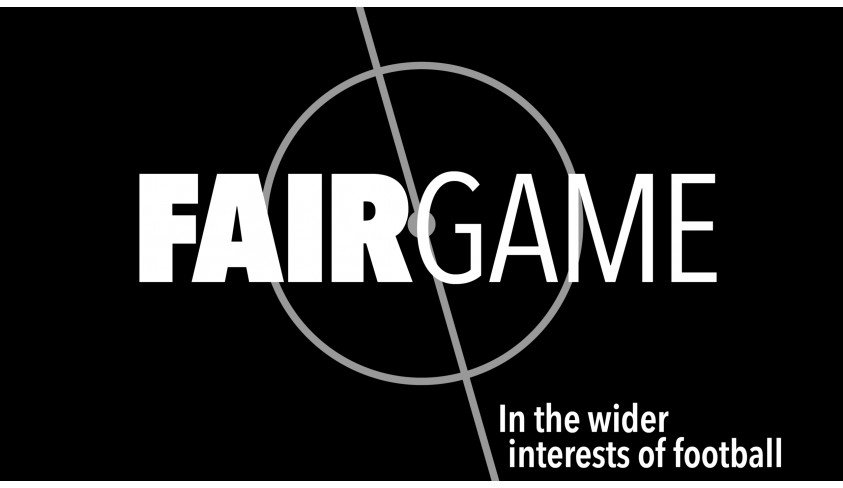Update from campaign
Fair Game gives cautious welcome to Government commitment to reform but warns delay and dithering will lead to devastation
- ‘If reform is kicked down the road it will represent the death knell for hard-working community clubs’ – Niall Couper, CEO Fair Game
- Football needs to commit to Sustainability Index and reward well-run club
FAIR GAME gave a cautious welcome to the commitment to football legislation made by the Government today, but warns that this cannot represent another false dawn where bureaucracy kicks the change the sport needs into touch. They added that any long-term change must come with reform to how monies in the game are distributed.
A Fair Game study published earlier this year found that in 2020 – that’s before the pandemic – 52% of our top clubs were technically insolvent. This means a club is only one bad owner or risky decision chasing football’s riches from ceasing to exist.
Niall Couper, CEO of Fair Game, said: “Football is in crisis. The announcement at last offers a real opportunity to save our game.
“The argument for an independent regulator is now over. There is huge cross-party political support for it and the ideas put forward by Fair Game and the Fan-Led Review.
“What we need now is a firm timetable for change. There can be no more delay or dithering.
“If reform is allowed to be kicked into the long grass, it will represent the death knell to the hard-working clubs at the centre of our towns and communities.
“The financial situation at most clubs is perilous. For too long the challenges in our national game have been booted down the road by the football authorities and successive governments putting our clubs on the edge of ruin.
“Let’s end the culture of gambling that has seen clubs spend more than they earn, a culture that sidelines the views of fans, pays no more than lip service to equality standards, and is devoid of any financial scrutiny.
“Legislation has the power to change football and protect our community clubs for the generations to come.
"In the meantime, the Football authorities must now grow up and create a financial system that rewards hard-working community clubs and stops giving money to failed Premier League clubs through parachute payments.
"We need a Sustainability Index. A system which grades clubs according to how they score on four criteria - financial sustainability, good governance, equality standards and fan & community engagement. The higher they score the more money they get.
"The devil is in the detail of course and it is disappointing that at first glance there is no mention of a new international transfer tax."
Dan Plumley, Senior Lecturer in sports finance at Sheffield Hallam University and an advisor to Fair Game added: “English football needs a financial reset. Covid-19 has left a huge hole in club revenues across the EPL and EFL but financial sustainability has been a problem for much longer. Revenue distribution, cost control, pan-European competition prize money and the threat of a European Super League remain the biggest challenges to financial sustainability and competitive balance and legislation is needed to protect the game.
“Such legislation needs to make football more financially sustainable, better governed, with proper equality standards, and real fan and community engagement. Fair Game’s Sustainability Index is a proposal that could help clubs achieve this.
“Such an index, alongside proper cost controls, wider governance reforms and independent regulation could transform football and begin to bridge the financial gap between leagues and clubs that has increased over the last 30 years. The time for collective action rather than self-interest is now, and football needs to work together to protect the long-term future of the whole industry.”
Niall Couper added: “Looking at regulation across different industries, the best results come where businesses are incentivised to improve rather than being threatened with punishment. The Sustainability Index is the mechanism to do that in football. It is an approach that has consistently worked in other regulated industries, and it would transform football.”
Fair Game is committed to working with Government to ensure the white paper represents the needs of clubs throughout the pyramid and delivers in levelling up the playing field in our national game.












